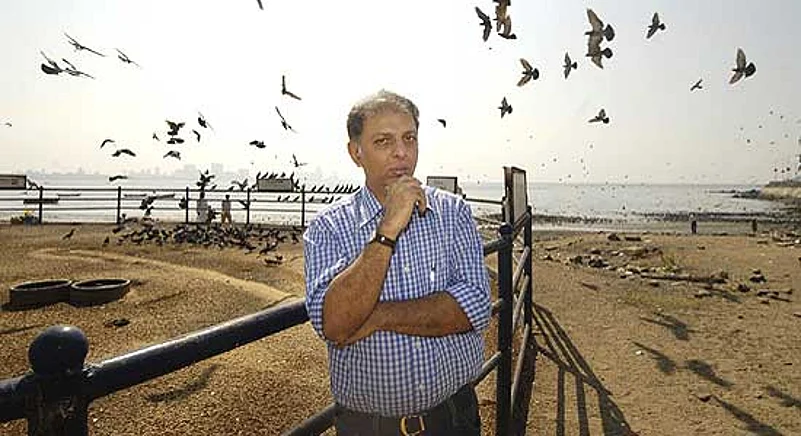Even though the Indian literary world hasn’t quite woken up to it, the plight of an Indian writer has exercised International pen, a leading global organisation of writers. The group has written to PM Manmohan Singh, Congress president Sonia Gandhi and Maharashtra CM Ashok Chavan expressing concern over the criminal charges brought against Mumbai author Murzban F. Shroff, over the use of a colloquial term, ‘ghati’ (one from the ghats, used commonly for a country bumpkin), in one of his 14 stories in Breathless in Bombay. PEN has urged for all the cases against Shroff to be dropped.
Breathless in Bombay, published by St Martin’s Press in the US and Picador in India, was shortlisted for the ’09 Commonwealth Writer’s Prize in the best first book category from Europe and South Asia and got two nominations for the Pushcart Prize, one of the highest literary awards for short story in the US. But rather than being feted for his creativity, Shroff has been accused of inciting communal disharmony.
Shroff’s ordeal began last February when Mumbai resident Vijay Mudras filed a complaint against the 47-year-old author in the metropolitan court, Dadar, under Section 153 B of ipc, contending that the word “ghati”, in the story ‘This House of Mine’, was intentionally used to incite feelings of enmity, hatred and ill-will. He alleged that it would “harm the reputation of Maharashtrians”. The police was directed by the metropolitan court to file an FIR against Shroff and he was summoned to the N.M. Joshi Marg police station for investigation.
Shroff, a former advertising professional, defends the words he has used. He points out that his stories deal with significant issues like encroachment, corruption, civic apathy and class biases. “The word ‘ghati’ is used by Olaf, the villain. An alcoholic misanthrope, he uses it to run down everyone around him, not any specific community. In fact, both the protagonist, as well as Olaf’s wife repudiate him for the usage. “By portraying a character, I am not advocating his views. Why should they be perceived as mine?” argues Shroff. “People jump at a word without judging the context in which it has been used. Every word has a specific meaning in a certain context,” says filmmaker Shyam Benegal.
Shroff moved the Bombay High Court in September and it did come to his rescue, with the judge passing an order that he was not a troublemaker and that no coercive action should be taken against him. On September 23, the police submitted a report to the metropolitan court recommending all charges be dropped since his story had a unifying rather than a divisive message. However, the metropolitan court is yet to hear the matter and quash the charges. Shroff waits in suspense while the hearing, originally scheduled for December 2, has been postponed to January-end.
“It’s surreal! It shows how our system can’t prevent loonies from harassing a prominent social figure like Murzban,” says author-filmmaker Jaideep Varma. Even as he fights to clear his name in Mumbai, more trouble is brewing for Shroff. Another case was filed against him by T.C. Gopalakrishnan in Kodikanal in November under Sections 292 and 293 of the IPC. The complainant alleged that his story Traffic is “obscene” and “highly derogatory to Indian womanhood”. He has objected to a woman “indulging in aggressive sex with a passive man” and rather comically has taken offence at the use of the word “wily”, which he misrepresents as willy. “It’s insulting to have someone decide randomly what Indian womanhood is all about,” says Shroff. Says Varma, “As writers, we take freedom of expression and democracy for granted. This shows how they mean nothing without a good legal system to back you up. Tomorrow it could happen to me and that’s a chilling thought.”






















